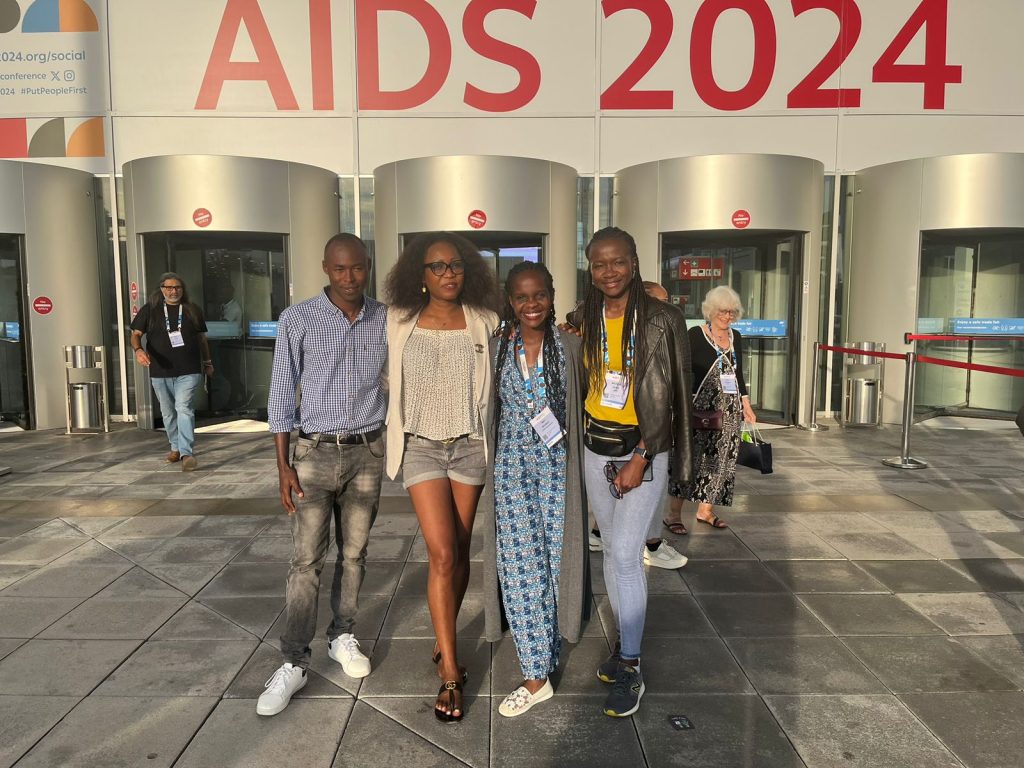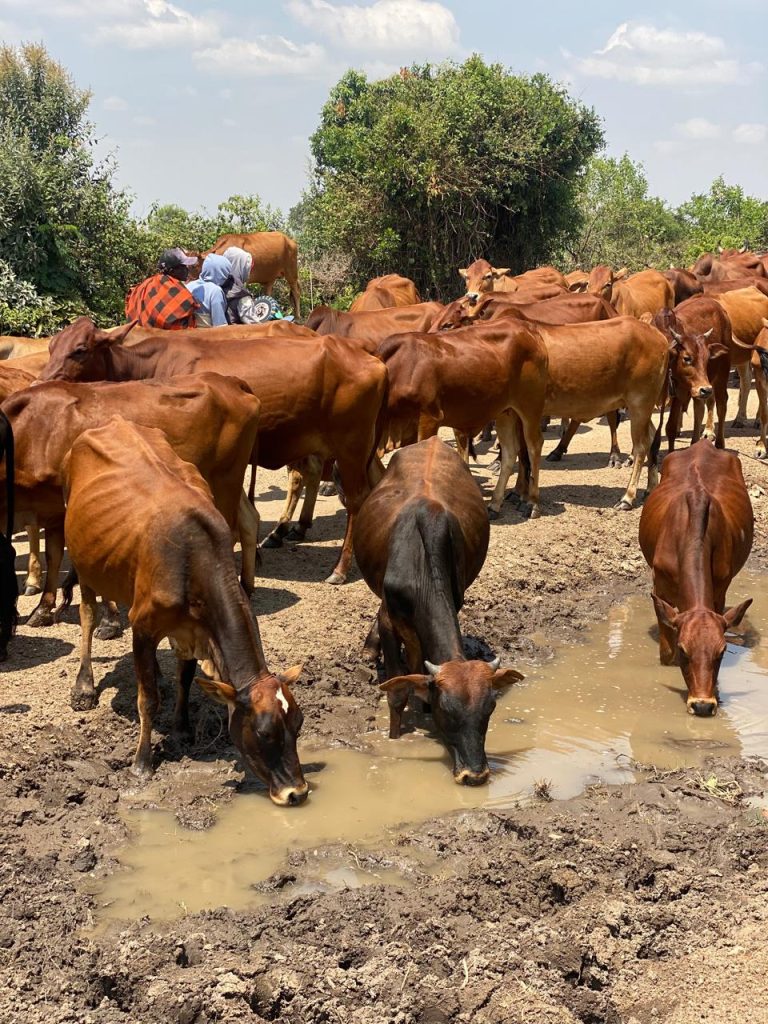In 2024, the African Center for Health, Climate & Gender Justice Alliance (ACHCGA), in close collaboration with AMREF, made a significant impact at the AIDS Forum in Munich, Germany. This event, central to global health research and development, served as a critical platform for discussing the complex intersection between climate change and its potential repercussions on HIV treatment and prevention efforts.
As the world grapples with the escalating impacts of climate change, another battle continues to wage, the fight against HIV and AIDS. Since its emergence, HIV has claimed millions of lives, remaining a formidable public health challenge. Increasingly, the link between climate change and HIV is becoming clear, particularly in vulnerable regions where the two crises converge. This convergence demands urgent action from all stakeholders to address the twin challenges of climate change and HIV.
According to WHO statistics, HIV has claimed the lives of 42.3 million people worldwide. Despite advances in medical technology, prevention, and treatment, the disease continues to affect millions. As of 2023, over 39.9 million people were living with HIV, with a staggering 65% of the global burden falling on the African continent. New infections in 2023 numbered 1.3 million, and there were 630,000 deaths related to the disease. This enduring crisis is further complicated by the growing impact of climate change, particularly in regions still developing or facing infrastructural challenges.
The correlation between HIV infection rates and climate change is becoming increasingly evident. Changing weather patterns, rising temperatures, and shifting disease dynamics have escalated into a public health emergency. In many HIV-endemic regions, such as Kenya, climate change exacerbates an already fragile healthcare infrastructure. Frequent droughts, famine, floods, and other climate-induced disruptions hinder the delivery of essential services, including HIV testing, treatment, and care. Health facilities often become inaccessible or damaged, leading to interruptions in critical services like antiretroviral therapy. Such disruptions can have dire consequences for people living with HIV, undermining the progress made over decades.
Those most affected by climate change—people living below the poverty line, marginalized groups, rural communities, women, and young people—are often the same populations disproportionately impacted by HIV and AIDS. Climate change intensifies socio-economic vulnerabilities, increasing the risk of HIV transmission. This duality underscores the urgent need for integrated approaches that address both environmental and health inequities, providing a more holistic response to these intertwined crises.
The intersection of climate change and HIV/AIDS places immense pressure on resource-strapped low-income countries. Funding that could support HIV prevention and treatment often gets diverted to immediate climate disaster responses. The urgent demand for resources to mitigate climate change can overshadow the need for sustained investment in HIV/AIDS programs, jeopardizing the gains made over recent decades.
At the 2024 AIDS Forum in Munich, Maureen Achieng, a leading researcher with AMREF, highlighted this dilemma: “The climate crisis is not just an environmental issue; it is a public health emergency that is making it increasingly difficult to control the HIV/AIDS epidemic in regions like Sub-Saharan Africa. There’s a need for integrated approaches that address both environmental and health inequities to ensure that the strides we’ve made so far in HIV prevention and treatment are not undone.” She further emphasized the critical role of meaningful youth engagement in decision-making processes, noting that young people are not only the backbone of vibrant economies but also bear the brunt of both crises.
The forum underscored the necessity for a multifaceted response to the HIV/AIDS and climate change nexus. Public health strategies and policies must incorporate climate resilience to ensure the uninterrupted flow of HIV/AIDS programs in the face of environmental challenges. This entails addressing the social determinants of health that climate change exacerbates and strengthening health infrastructure to withstand environmental disruptions. Global health policies must advocate for increased financing and resource allocation to tackle both crises simultaneously. International organizations, governments, and NGOs must work collaboratively to establish integrated policies that meet urgent health needs while enhancing resilience against climate change.



Hello,
I am Husam Orabi, Qatari Investors Group’s chief business development and delivery officer. We offer loans and credit facilities at a small interest rate for ten years and a moratorium of up to two years.
We also finance profit-oriented projects and businesses. We understand that each business is unique, so let us know what you need for your business, and we will tailor our financing to suit your specific requirements.
Regards,
Husam Orabi
CHIEF BUSINESS DEVELOPMENT & DELIVERY OFFICER
Mobile: +971524239312
Whatsapp: +971524239312
husam@qatarinvestors-group.com